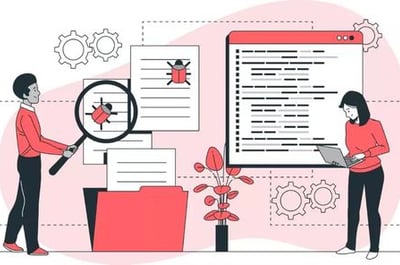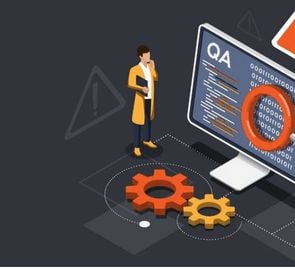
Start Earning Immediately After Mastering Software Testing
Software Testing (QA Engineering) is a vital skill that ensures software applications are reliable, secure, and user-friendly. Once you complete the course, you can start working on real-world projects by testing websites, apps, and enterprise systems. Whether you freelance, join a QA team in a tech company, or work with startups, skilled QA engineers are always in demand. With expertise in manual testing, automation tools like Selenium, and bug tracking systems, your earning potential begins immediately. Businesses value QA professionals who can guarantee high-quality software before it reaches users.
What is Software Testing ?
Software Testing is the process of evaluating software applications to identify and fix bugs, performance issues, and security vulnerabilities before they are released to users. QA Engineers use a mix of manual testing techniques and automated tools to ensure that software meets quality standards. Testing spans from functional testing to load, security, and usability testing. Today, in the era of rapid software development, QA engineers play a critical role in maintaining product reliability, making it one of the most rewarding and respected tech career paths.
What You Will Learn in Our QA Engineering Course
In our QA Engineering (Software Testing) course, you will learn how to ensure software quality by thinking like a user — but testing like an expert. You'll start with the basics of software development life cycles, testing principles, and types of testing, then dive into practical techniques like writing test cases, executing manual tests, and identifying bugs. You'll also explore advanced topics such as automation testing with Selenium, performance testing with JMeter, and Agile testing practices. Through hands-on projects, live simulations, and expert mentorship, you'll gain the practical skills needed to validate applications, catch critical issues early, and excel in the fast-growing world of software quality assurance.
1.Introduction to Software Testing


Learn the basics of software testing, why it is important, and how it fits into the software development lifecycle (SDLC). Understand different types of testing like functional, regression, performance, and acceptance testing




2.Manual Testing Techniques
Master the art of manual testing by creating test cases, executing test plans, and documenting bugs. Learn how to think from a user’s perspective and ensure all software functionalities work as expected.
Dive into automation testing using Selenium WebDriver. Learn to write scripts in languages like Java or Python to automate repetitive testing tasks, saving companies time and money while improving test accuracy.
3.Automation Testing with Selenium
4.Bug Reporting and Test
Management Tools
Gain hands-on experience with industry-standard tools like JIRA, TestRail, and Bugzilla. Learn how to log defects, track bug life cycles, and collaborate with development teams to ensure quick fixes




5.Performance and Security Testing Basics
Understand how to check applications for speed, responsiveness, and vulnerability to cyber threats. You’ll be introduced to tools like JMeter for performance testing and OWASP standards for security.
Learn how QA fits into modern Agile teams and DevOps pipelines. Understand continuous testing, CI/CD practices, and how to deliver high-quality software faster with automated test scripts integrated into deployment workflows.
6.Agile Testing and DevOps Integration


Jobs You Can Get After Completing a QA Engineering Course
1.Manual QA Tester


Execute test cases manually to identify bugs and usability issues in websites, apps, or enterprise software. This is a great starting point to build a strong foundation in the testing field.




2.Automation QA Engineer
Design and run automated test scripts using tools like Selenium, Appium, or Cypress. Automation testers are highly valued for their ability to improve testing efficiency and consistency.
Evaluate how applications perform under heavy load using tools like JMeter or LoadRunner. You’ll help businesses ensure their apps don’t crash when traffic spikes.
3.Performance Tester
4.QA Analyst


Focus on protecting the integrity and confidentiality of data as it travels across networks. You’ll configure firewalls, VPNs, and intrusion detection systems.




5.Security Tester
Perform vulnerability assessments using automated and manual methods. Identify weaknesses before hackers do and recommend improvements.
Offer your testing services independently, working with startups, software companies, and mobile app developers globally. Freelancing offers flexibility and diverse project exposure.
6.Freelance QA Tester
Why Choose Us for QA Engineering?
Our QA Engineering course is carefully designed to transform beginners into professional software testers with practical, job-ready skills. You’ll learn from experienced QA professionals through live projects, real-world scenarios, and industry-based assignments. The curriculum covers everything from manual testing to advanced automation frameworks and performance testing tools. With personalized mentorship, career guidance, and interview preparation support, we ensure you are ready to step into the workforce confidently. Whether you want to join a QA team, work remotely, or freelance globally, we equip you with all the tools you need to succeed in the dynamic world of software testing.
